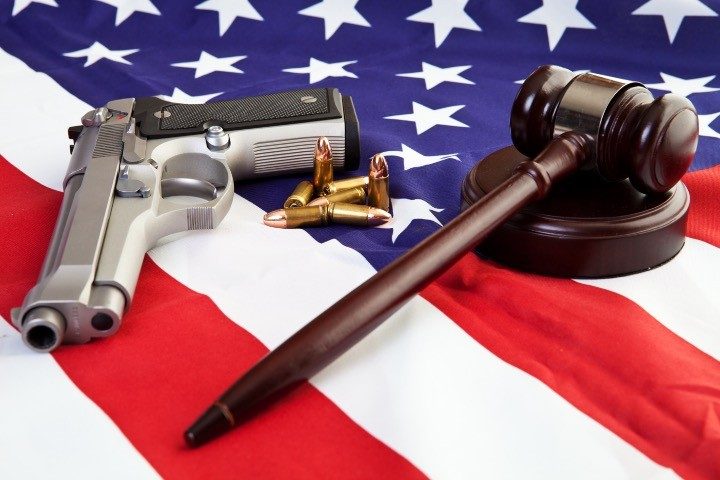
Justice Thomas Moran of the Supreme Court of Monroe County, New York, part of the state’s Seventh Judicial District, ruled in late December that the state’s red flag law, aka Extreme Risk Protection Order law, or ERPO, is unconstitutional.
He relied on the recent Supreme Court ruling in Bruen that any law infringing on a citizen’s rights under the Second Amendment meet a very strict standard: “The government must demonstrate that the regulation is consistent with the Nation’s historical tradition of firearm regulation.”
The state’s ERPO law didn’t meet that standard, and Judge Moran tossed it:
[The law’s] goal of removing weapons from the otherwise lawful possession of them by their owners, without adequate constitutional safeguards, cannot be condoned by this Court.
While some may advocate that “the ends justify the means” in support of [the law], where those means violate a fundamental right under our Bill of Rights to achieve their ends, then the law, on [its] face, cannot stand.
Therefore, the “Temporary Extreme Risk Protection Order” (TERPO) and “Extreme Risk Protection Order” (ERPO) are deemed to be unconstitutional by this Court.… It cannot be stated clearly enough that the Second Amendment is not a second class right, nor should it ever be treated as such. [Emphasis in original.]
In reviewing the ruling, legal firm Tilem & Associates said, “This particular case highlights everything [that is] wrong with Red Flag laws,” adding:
The Petitioner who filed for the Extreme Risk Protection Order was the estranged boy friend of the Respondent who was a licensed gun owner in New York State.
He alleged that his ex-girlfriend was a danger to herself and others and obtained a Temporary Extreme Risk Protection Order.
The boyfriend cited instances dating back to 2020 to bolster his case. What the boyfriend failed to note, however, was that he himself was under a restraining order from his ex-girlfriend. So it was retaliation, pure and simple.
Which is what makes red flag laws so dangerous. Under New York’s law, and most of those in other states, anyone with a grievance can file a complaint. If granted, the “respondent” — the victim — will find police at his/her door to confiscate his/her firearms.
As the Tilem law firm notes, “extreme risk protections have become very popular in anti-gun states [like New York] and are a way for government officials to take away the Second Amendment rights of individuals who have not committed any crime.” (Emphasis added.)
The attorney representing the ex-girlfriend, Daniel Strollo, called such laws a “a very quick and easy mechanism to deprive somebody of their fundamental Second Amendment rights.”
The problem with the law, according to Strollo, is that
You have people who are essentially not medical professionals expressing medical opinions that result in the deprivation of rights.
And you have a procedure that essentially allows somebody to lose those rights without ever having gone in front of a judge.
All of which violates the Fourth Amendment as well as the Second:
The right of the people to be secure in their persons, houses, papers, and effects, against unreasonable searches and seizures, shall not be violated, and no Warrants shall issue, but upon probable cause, supported by Oath or affirmation, and particularly describing the place to be searched, and the persons or things to be seized.
The Liberal Gun Club (which claims to “provide a pro-Second Amendment voice for left-of-center gun owners”) assured its members that the ruling by Justice Moran is likely to be appealed.
Moran’s ruling was welcomed by “right-of-center” gun owners, who correctly fear that red flag laws, if upheld, could be turned into “gun confiscation” laws applying to anyone owning a gun.



